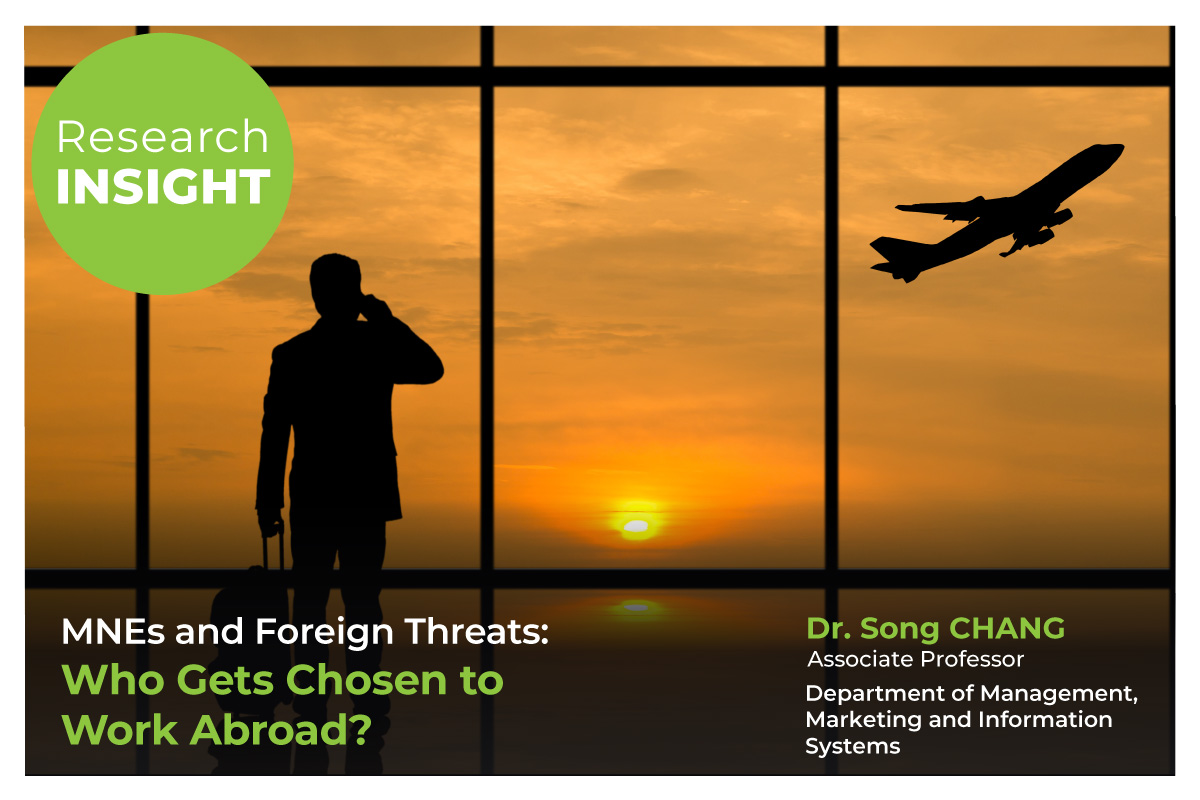School of business - research


Many ambitious MBAs hope to one day be stationed overseas to run a multinational enterprise (“MNE”) from their home country, if only to enjoy a posh expat package. Even if they seem glamorous, these jobs are not always without risks; for example, managing a bank in Europe might be less hazardous than operating a mine in a war-torn country. A recent study[1] delves into how MNEs evaluate threats in foreign locations as they weigh the choice between deploying home country nationals or hiring local managers.
As globalization continues to accelerate, MNEs often appoint individuals from their home country to spearhead expansion into foreign markets, due to their familiarity with headquarters' culture and standards. However, operating abroad expose MNEs to new risks. They may face threats stemming from macroeconomic factors, potentially leading to financial losses. Alternatively, MNEs may also encounter threats related to ethical concerns such as human rights violations. Integrating insights from psychology, the researchers also qualify threats as either tangible – i.e factors that may impact profits or physical well-being – or symbolic, reflecting differences in values between countries such as the use of forced labour. Regardless, failure to address these threats can be expensive: in 2019, Walmart had to pay $282 million to settle charges from US authorities after failing to maintain a proper anticorruption program in Mexico.
Analyzing data from 19,444 subsidiaries owned by 5,371 Japanese MNEs across 36 countries from 1990 and 2018, the authors demonstrate that when facing threats of a symbolic nature, MNEs tend to appoint parent-country nationals to manage foreign subsidiaries as they seek to preserve their core values and minimize reputational risk. Conversely, when confronting more tangible threats, MNEs don’t hesitate to delegate control to host-country nationals who can leverage their local knowledge to preserve economic gains or mitigate potential losses. Interestingly, the level of globalization within an industry amplifies the impact of symbolic threats while diminishing the influence of realistic threats. It seems that the scrutiny of global stakeholders compels MNEs to act as ethical leaders abroad, often by dispatching parent-country nationals as both executives and value ambassadors.
So what’s our budding CEO should do? Maybe taking business ethics classes instead of finance and working in a globalised industry is the best way of getting that expat job, since firms are more likely to rely on their nationals to advocate for their values when posted abroad. Who could have foreseen that multinational enterprises would emerge as trailblazers of globally responsible corporate citizenship?
Reference:
[1] Yao, F. K., Yang, J. Y., Chang, S., & Lu, J. W. (2023, November 16). “Not All Threats are Equal: Symbolic and Realistic Threats and The Deployment of Parent-Country Nationals.” Journal of International Business Studies. (https://doi.org/10.1057/s41267-023-00654-7)